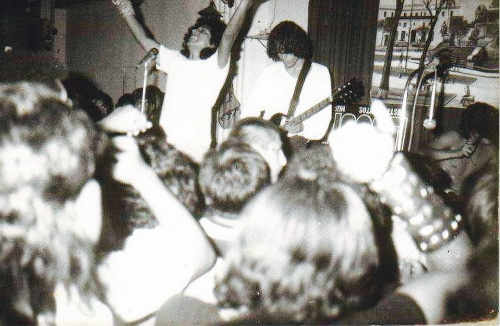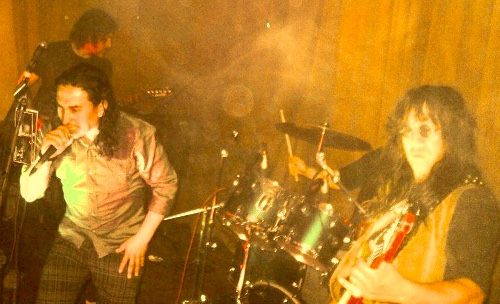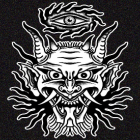
Listening to Almas Inmortales' self-titled 2014 album release is like unearthing a time capsule of classic heavy metal sounds, unblemished by any stylistic deviations the genre may have taken since the '80s. This is apropos as the band formed in 1986 with members coming from Oxido and Orgus, both pioneering groups of the early Peruvian metal scene. Building on a base of Dio-era Black Sabbath and vintage Judas Priest guitar riffs, and taking cues from the NWOBHM scene and also American bands of that period like Trouble and Metal Church, Almas Inmortales created a sound worthy of their influences.
SEE ALSO: Peru's Heavy Metal Warriors of the '80s
The tumultuous climate in their country during that era made documenting the music impossible, and the band dissolved in 1988 after playing a series of memorable concerts and recording a three-song demo.

In 2013, after living for a spell out of the country, one of the original members visited Lima and rehearsals went underway to see if some of the old magic remained. Concerts soon followed, and—eventually—a desire to properly record their old material. Normally this type of mindset for reformed bands leads to a well-meaning but watered down rehash of past glories. Almas Inmortales prove to be the exception, as the powerful vocal stylings of Miguel "El Loco" Cervantes—one of the best metal and hard rock singers Peru ever produced—are as potent as ever. Guitar hero Javier Mosquera delivers fluidly stylized riffs and majestic solos. Meanwhile, the formidable rhythm section of Martin Bazan and Romulo Hernandez lays down a rock solid groove, allowing space for the tunes to build upon one another, highlighting a superb sense of cadence and melodic touches.
Lyrically speaking, the songs touch on mystical, social, and historical themes that complement the sweeping nature of the music. A majority of the original Peruvian metal bands were unable to leave worthy recorded documents, and this release goes a long way towards righting that wrong. Almas Inmortales prove that heavy metal was a vital global form of expression during the '80s, and its influence is still as profound, echoing to our present day.

Get It
- Almas Inmortales (CD)




















